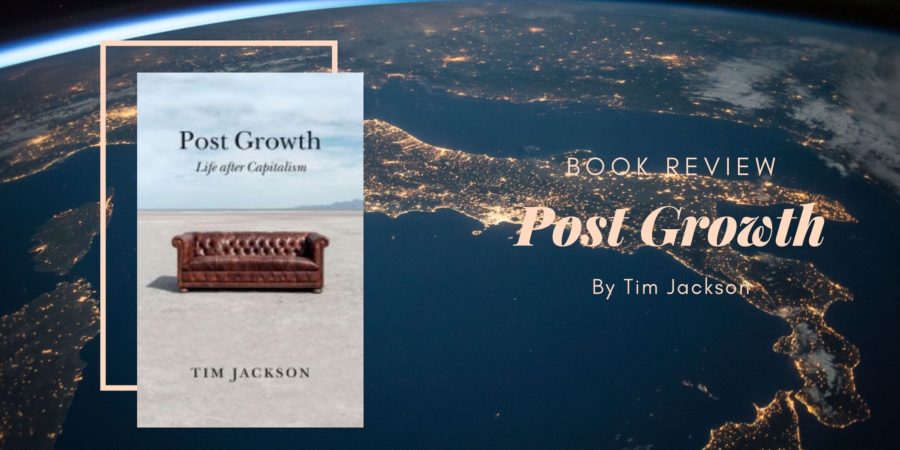Last year, I read Prosperity Without Growth by Tim Jackson, a book that felt like a very timely read. And although it’s been about a year since then, we’re still in an economic slowdown and the idea that we need to rethink our definitions of prosperity remains relevant. So when I was offered a review copy of Post Growth, also by Tim Jackson, I immediately said yes.
If you’ve read Prosperity Without Growth, the ideas in Post Growth will not come as a surprise. The central thesis of both books is that growth cannot be infinite and that we must learn to live in a society that does not depend on economic growth. To me, Post Growth goes a bit deeper into the history of the idea that economic growth cannot stop, and gives a few more ideas as to what we should be prioritising instead (spoiler: these are – work (not bullshit jobs), physical health, and happiness).
Something I thought interesting was the assertion in chapter two that “self-interest left unchecked undermines the benefits of the market”. According to Jackson, this is something that even Adam Smith, the founder of economics, knew. I think it’s pretty paradoxical – the free market works, but only if we all have a modicum of respect for one another and don’t try to exploit our fellow men.
While the latter half of the book takes aim at modern capitalism, I thought it was interesting that the beginning of the book pointed the problem at the lack of growth (which is something that communist countries also want to do). According to the book, the profit motive works when labour productivity has room to grow (wages can increase, goods can get cheaper, etc). But when labour productivity stalls, that is when costs go up, wages stagnate (implication – more exploitative employment practices). And this is where we are right now – for all the touted advances that technology is bringing, especially in the area of Industry 4.0, we don’t seem to be seeing the productivity growth brought about by the previous industrial revolution, which means that the free market is not working according to theory.
I really like the second half of the book, which considers how we may move past a focus on economic growth. There is a move to value work that creates something of value, there is the need for us to moderate our cravings (would point out it’s not just a Buddhist concept), the need for us to invest in sustainability, and that it’s okay for governments to intervene in the economy.
As with Prosperity without Growth, this book falters a little when it comes to concrete solutions. I think this is most evident in the ninth chapter on The Art of Power, where Jackson talks about the need for good government but doesn’t really address the issue of inter-government cooperation. He did start the chapter with the revelation that other considerations, like what happens when your GDP lags behinds your allies/rivals, but how should we coordinate efforts so that this is not an issue? Thankfully, other chapters are less vague – we are quite clearly recommended to pursue activities that will induce a flow state, and the chapter on the environment comes with a recommendation to direct investments to essential workers/workers creating value, and into infrastructure for a sustainable society.
Overall, Post Growth is a more comprehensive and more detailed book compared to Growth Without Prosperity. While the message of the books are very similar, I think The Myth of Growth has more detail and slightly more actionable solutions. If you have to read one book on this topic, I think you should choose this one.
Disclaimer: I received a free copy of this book from the publisher but all thoughts on the book are my own
Featured Image: Photo from Canva

This looks like a fascinating and thoughtful read – and really timely, given everything that’s gone down in the past year! Nice review!
Thanks! This is a really relevant book for our times!
This looks like such an interesting read, I definitely don’t know enough about the world’s economy!
I found this accessible, so maybe you will too! (But to be transparent, I also took economics in uni so what I consider accessible may not be :p)
Hahaha well the transparency is appreciated! I most definitely did not to economics lol